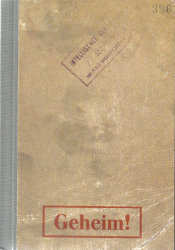In 1892 an alarming tale made the rounds of British magazines — the adventure of a Mr. Dunstan, a naturalist in Nicaragua:
‘He was engaged in hunting for botanical and entomological specimens, when he heard his dog cry out, as if in agony, from a distance. Running to the spot whence the animal’s cries came, Mr. Dunstan found him enveloped in a perfect network of what seemed to be a fine, rope-like tissue of roots and fibres. The plant or vine seemed composed entirely of bare, interlacing stems, resembling, more than anything else, the branches of the weeping-willow denuded of its foliage, but of a dark, nearly black hue, and covered with a thick, viscid gum that exuded from the pores.’ Drawing his knife, Mr. Dunstan attempted to cut the poor beast free; but it was with the very greatest difficulty that he managed to sever the fleshy muscular fibres of the plant. When the dog was extricated from the coils of the plant, Mr. Dunstan saw, to his horror and amazement, that the dog’s body was bloodstained, ‘while the skin appeared to have been actually sucked or puckered in spots,’ and the animal staggered as if from exhaustion. In cutting the vine, the twigs curled like living, sinuous fingers about Mr. Dunstan’s hand, and it required no slight force to free the member from its clinging grasp, which left the flesh red and blistered. The gum exuding from the vine was of a greyish-dark tinge, remarkably adhesive, and of a disagreeable animal odor, powerful and nauseating to inhale. The natives, we are told, showed the greatest horror of the plant, which, as we have noted above, they called the ‘devil’s snare,’ and they recounted to the naturalist many stories of its death-dealing powers. Mr. Dunstan, we are told, was able to discover very little about the nature of the plant, owing to the difficulty of handling it, for its grasp can only be shaken off with the loss of skin, and even of flesh. As near as he could ascertain, however, its power of suction is contained ‘in a number of infinitesimal mouths or little suckers, which, ordinarily closed, open for the reception of food.’ ‘If the substance is animal, the blood is drawn off and the carcass or refuse then dropped. A lump of raw meat being thrown it, in the short space of five minutes the blood will be thoroughly drunk off and the mass thrown aside. Its voracity is almost beyond belief.’
None could quite agree on the piece’s source or author, but they were surprisingly open-minded as to its truth. “It must be admitted to be circumstantial enough in all its details to be possible,” wrote the editors of the Spectator. “The story is unquestionably a very curious one, and we may rely upon it, that if the plant really does exist, we shall soon have a specimen at Kew. The digging of the Nicaragua Canal will bring plenty of Americans and Englishmen into the very country where the ‘vampire vine’ is said to exist, and the question whether the whole thing is or is not a hoax may very soon be tested.” Indeed, they said, this argued in favor of the story’s truth: A hoaxer would have placed his plant in a more obscure location.




